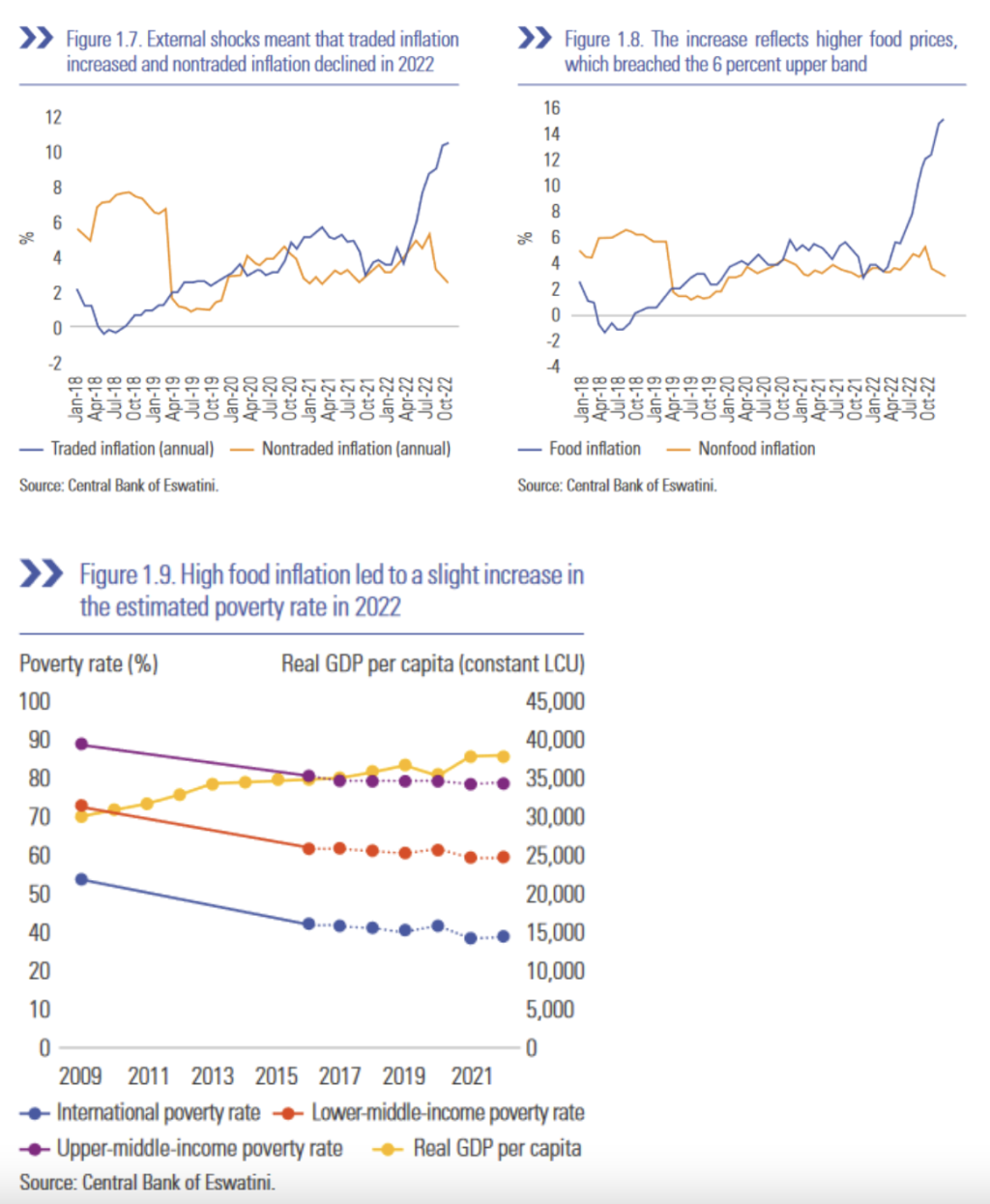Highlights:
Eswatini’s economy has been characterized by persistent low growth, high fiscal deficits, and unprofitable state-owned enterprises (SOEs). Without significant reform, the country is unlikely to achieve its socioeconomic aspirations, and poverty and unemployment are likely to remain high. These problems are exacerbated by the difficult external environment, with subdued global demand and volatile international prices.
This report is divided into two parts. Part 1 discusses recent economic developments in the global and domestic economy and assesses Eswatini’s short-and medium-term prospects. Part 2 reviews the role that SOEs can play in the government's efforts to enhance economic performance.
-
Eswatini’s economy briefly improved after the pandemic, but growth is slowing.
-
Rapidly rising prices have negatively affected household welfare and poverty
External shocks, especially Russia’s invasion of Ukraine, saw inflation rising from 3.7 percent in 2021 to 4.8 percent in 2022, although it remained low relative to other countries in SACU. Elevated global energy and food prices were soon transmitted to local prices. In June 2022 food inflation breached the Central Bank’s upper threshold of 6 percent for the first time in five years, and by May 2023 it had accelerated to 15.7 percent. Poorer households were disproportionally affected, leading to a slight rise in the share of people living on less than US$2.15/day (2017 purchasing power parity [PPP]).
-
The current account slumped, and foreign reserves critical to cushion against fiscal and external shocks fell below international norms.
-
The fiscal situation is improving, but more reform is needed.
-
The outlook is encouraging, but subject to multiple downside risks.
-
The state plays multiple roles in the economy, which sometimes overlap.
-
Eswatini does not have many SOEs, but they retain a considerable presence, affecting service delivery and constraining private sector activity.
-
The government needs to reconsider the role of SOEs in the economy, with a more robust legal framework and stronger governance and oversight.

| Year of publication | |
| Geographic coverage | Eswatini |
| Originally published | 11 Aug 2023 |
| Related organisation(s) | World Bank |
| Knowledge service | Metadata | Global Food and Nutrition Security | Food security and food crises |
| Digital Europa Thesaurus (DET) | inflationpovertywar in Ukraineeconomic analysis |
